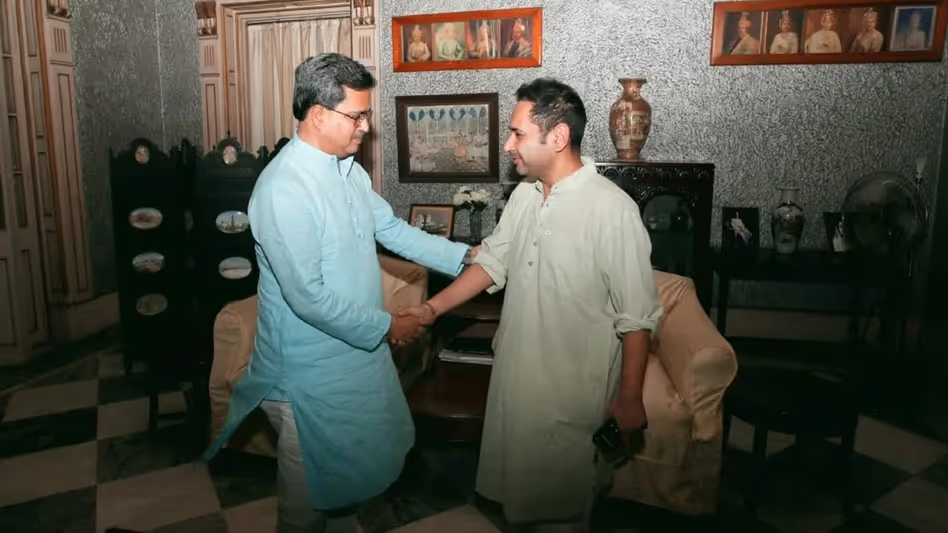Pradyot Kishore Manikya Debbarma, the founder of Tipra Motha and a key political figure in Tripura, has reached out to Chief Minister Dr. Manik Saha, seeking intervention in addressing what he describes as systemic failures in the governance of the Tripura Tribal Areas Autonomous District Council (TTAADC). In his letter to the CM, Debbarma highlighted the pressing issues that have plagued the Council for years, emphasizing the urgent need for reforms to ensure effective governance.
According to Debbarma, many of the problems within the District Council stem from poor governance under previous administrations. He pointed out that this has resulted in a system where merit has often been overlooked in favor of mediocrity. Debbarma believes this has severely hampered the Council’s ability to serve the people of Tripura effectively, particularly the tribal communities that depend on it for essential services and infrastructure development. By bringing these issues to the attention of the state government, he hopes to bring about meaningful change.
Debbarma’s call for reform is rooted in his belief that a strong and well-functioning TTAADC is critical to the development of Tripura’s tribal areas. He argued that only through effective governance, transparent decision-making, and a merit-based approach can the Council deliver on its promises to improve living conditions and provide opportunities for the people it serves. He expressed concern that without immediate intervention, the Council would continue to struggle, and the needs of the tribal population would remain unmet.
In his communication with the Chief Minister, Debbarma laid out several key areas where he believes reform is most needed. One of his primary concerns is the lack of accountability within the Council. He suggested that steps should be taken to ensure that those in positions of power are held responsible for their actions and decisions. This, he argued, would create a more transparent and effective system, where the interests of the people are prioritized over personal or political gain.
Another issue Debbarma raised is the mismanagement of resources within the TTAADC. He pointed out that funds allocated for development projects and essential services are often misused or wasted due to inefficiencies within the system. He urged the Chief Minister to work with the state government to address these issues, ensuring that resources are utilized effectively and that the people of Tripura’s tribal areas see tangible benefits from government initiatives.
Debbarma also called for the state government to support efforts to strengthen the capacity of the TTAADC. He emphasized the need for investment in human resources, suggesting that the Council should focus on hiring qualified and capable individuals to fill key positions. By prioritizing merit over political connections or personal affiliations, Debbarma believes the Council can build a team of professionals who are committed to serving the people and improving governance.
The founder of Tipra Motha also touched on the importance of long-term planning for the development of Tripura’s tribal areas. He argued that the Council should not only focus on addressing immediate challenges but also work towards a comprehensive strategy for sustainable development. This, he said, would require close collaboration between the TTAADC and the state government, as well as support from the central government to ensure that the necessary resources and expertise are available.
Debbarma’s appeal to the Chief Minister reflects his deep concern for the welfare of Tripura’s tribal population. He has consistently advocated for the rights of the indigenous people and has been a vocal critic of policies and practices that he believes have marginalized these communities. By seeking the state government’s assistance in addressing the systemic issues within the TTAADC, Debbarma is taking a proactive approach to ensuring that the Council can fulfill its mandate and deliver meaningful results for the people it serves.
Chief Minister Dr. Manik Saha has yet to respond to Debbarma’s request, but political analysts believe that the Tripura government will take the concerns seriously given Debbarma’s influence and the importance of the TTAADC in the state’s governance structure. As the situation unfolds, all eyes will be on the collaboration between the state government and the District Council to see if meaningful reforms can be implemented to address the long-standing challenges facing Tripura’s tribal areas.

